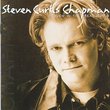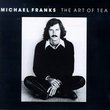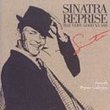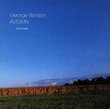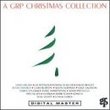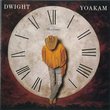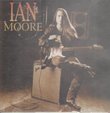| All Artists: Steven Curtis Chapman Title: First Hand Members Wishing: 0 Total Copies: 0 Label: EMI Special Products Release Date: 1/15/2002 Genres: Country, Pop, Christian & Gospel Styles: Adult Contemporary, Pop & Contemporary, Country & Bluegrass Number of Discs: 1 SwapaCD Credits: 1 UPC: 724353312428 |
Search - Steven Curtis Chapman :: First Hand
 | Steven Curtis Chapman First Hand Genres: Country, Pop, Christian & Gospel
|
CD DetailsSimilar CDsSimilarly Requested CDs
|
CD ReviewsSecond-Hand Imitation Early-to-Mid '80s Pop and Nondenominat Chip Webb | Fairfax Station, VA | 09/09/2007 (2 out of 5 stars) "Steven Curtis Chapman's First Hand (1987), his first album, could have been a lot worse. If that sounds like faint praise, just remember that even in 1987, first-album contemporary Christian music (CCM) budgets were pretty small. It also was still "cool" back in 1987 if Christian albums, with their lower production values, sounded at all like secular pop ... even secular pop from a few years earlier. The fact that First Hand comes across 20 years later as mildly enjoyable mid-'80s Christian retro and even a not-too-bad first album is a credit to the efforts of Chapman, producer Phil Naish, and the other artists and musicians who worked on the album. But while the album in some ways is impressive for a first offering, the obvious attempts to fit Chapman into several boxes are cringe-inducing. The first box is that of an imitation secular early-to-mid '80s pop star. The bridge of First Hand steals musically from Kenny Loggins and sounds like both "Footloose" and, to a much lesser extent, "Ride into the Danger Zone," on steroids. (It's not hard to sing "Cut footloose!" several times during the bridge.) Most of the rest of the time, though, Chapman channels Huey Lewis. You can sing the chorus of Lewis' 1982 hit "Do You Believe in Love" over parts of "Weak Days," while "Run Away" is similar to Lewis' 1984 hit "If This Is It." "Tell Me" and "Dying to Live" are likewise Lewis-esque. "Tell Me's" serious message, alas, is undercut by campy "weeooo" background vocals (similar to those in Lewis' "Do You Believe in Love") courtesy of Chapman and his background singers, which included some of Michael W. Smith's then-current band. "Dying to Live" is better but sounds musically and lyrically like an early draft of "My Turn Now," a big hit off of Chapman's next album, Real Life Conversations (1988). Make no mistake, such imitation pop was common at the time in CCM. The best example of it was found on Michael W. Smith's The Big Picture (1986), which riffed off of Yes' 90125 (1983) to an almost embarrassing degree but did it so well -- and with such incredible production values -- that nobody cared. However, that album was too rocking for many contemporary Christian parents and didn't sell very well as a consequence. Undoubtedly First Hand would have been more amenable to their tastes, particularly since the style of '80s pop that Chapman imitated itself hearkened back to '50s pop. (Even conservative evangelicals in the '80s often were tolerant with pop music up through the 1950s.) Consequently, due to the controversy, most Christian radio stations wouldn't play imitation pop songs as radio singles at that time. Rather, the slowest songs on a CCM album inevitably would be played on air, and they could be categorized into two types of ballads. The first type, which was best for widest exposure by the most conservative radio stations, sounded as if they could be sung in churches. So the second box into which Chapman had to fit was that of a contemporary evangelical, nondenominational church soloist. For these tunes, you wanted big vocals, an extremely inspirational message, and twinkling keyboard notes that sounded like they might become background music for an altar call at any moment. "Do They Know" and "Who Cares" fit into this mold perfectly. [This type of music eventually was satirized by DC Talk in their "Jesus Freak (Reprise)" cut off of their 1995 Jesus Freak album.] The second type of ballad was still very slow but more modern, and this type of song would get played on the majority of Christian radio stations. (These songs also might make their way into churches, but they were somewhat less likely to do so than those in the former category.) Such stations sought to be contemporary but were not yet ready for full-blown pop, which was still extremely controversial in nondenominational evangelical circles. "Hiding Place" and "My Redeemer Is Faithful and True" find Chapman fitting into this mold extremely well. Both hold up fine two decades later; the latter track in particular is simply beautiful, and is easily the best cut on the album. What you don't hear at this point is a lot of true Steven Curtis Chapman style. Musically, it would take his third effort, More to This Life (1989), to finally play to his then-strengths in the country/pop field. (Chapman's pop/rock strengths would only develop later over time, and particularly under the guidance of producer Brown Bannister.) Lyrically, we do see a concentration even in this album on discipleship, which would serve as Chapman's lyrical focus on his first several albums. (Chapman's ultimate examination of the subject matter would appear on For the Sake of the Call [1990].) On First Hand, Chapman calls his listeners to get engaged in the Christian life. The album is also noteworthy for containing Chapman's first love song, "Said and Done," which is far more general and less personal than his later odes to his wife Mary Beth. However, like later love songs, "Said and Done" shows marriage to be a difficult, but worthy, road to take. So if you feel like returning to the thrilling days of yesteryear, to the time when imitation pop with lower production values was common and slow ballads, including church soloist songs, ruled the Christian airwaves, First Hand might just do the trick for you. This album is a pretty good first effort from Chapman, even though he had a long way to go to make his mark as an artist. Two-and-a-half stars." I still like it after all these years Jesse E. Whitehead | Lodi, CA United States | 11/13/2007 (5 out of 5 stars) "Sure, maybe the style "borrows" heavily from 80's pop icons such as Huey Lewis, Kenny Loggins, Richard Marx et al, but if you liked those artists (as I did back then), you'll probably really like First Hand as well.
Although criticized by some for "ripping" off other artists, I don't quite see it that way. What was wrong with emulating the style that was already so popular in mainstream culture? After all, I remember hearing quite often from the pulpit that we shouldn't listen to secular music, but we needed to listen to "Christian Music" instead. But what were the alternatives? For the most part not too many good ones at that time--at least not in a pop genre. Steven Curtis Chapman provided a positive and scripturally-based (if not cloned) alternative to the secular pop music being played on the airwaves back then. And that gave me something to listen to and be happy about. I bought this recording back in 1987, and have ALL of SCC recordings up to his very latest ("This Moment" at the time of this writing). As great as many of his recordings are, First Hand remains one of my top 5 favorites out of them all. It's upbeat and thought-provoking, and it makes me feel good and inspired every time I hear it. While it's clear SCC hasn't yet found his own style in this recording, hints of his brilliance are already shining through here with his catchy tunes and clever hooks. It only gets better with subsequent recordings, but First Hand is a good first start for what will become a legendary career for Steven Curtis Chapman. " |

 Track Listings (10) - Disc #1
Track Listings (10) - Disc #1